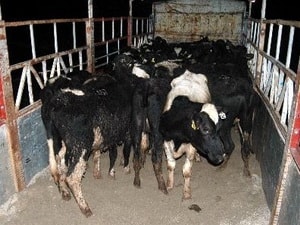Old farmer turns waste into export goods
After a period of research, the production facility of Mr. Ho Sau's family, an old farmer in Tay Hoa commune, Trang Bom district, Dong Nai province, has successfully produced feed for dairy cows for export to the world market.
This is a type of food produced from agricultural waste, which farmers often throw away after harvest, such as corn stalks, bean husks, and sugarcane bagasse.
Currently, on average, each month, Mr. Ho Sau's production facility exports over 3,000 tons of dairy cow feed to Japan and South Korea at a price of 115 USD/ton.

Illustrative photo. (Source: VNA)
Before that, this quick-witted farmer noticed that after each crop, farmers usually only harvested tubers and fruits for their own consumption and discarded the roots and leaves of many plants. Meanwhile, they were actually food for dairy cows, but they could not be preserved for long.
From the above reality, Mr. Ho Sau came up with the idea of making a machine to process feed for dairy cows from agricultural waste. He bought agricultural waste, classified it, then fermented it with clean green technology to preserve it for a long time and still ensure enough nutrients for cows. These products are popular not only in the domestic market but also in foreign markets.
Many partners from Korea came to meet Mr. Ho Sau and ordered large quantities of dairy cow feed. However, because the factory's capacity is only 100 tons/day, many orders could not be fulfilled.
Mr. Ho Sau shared: "I am planning to expand the existing production facility and set up some more branches in localities with abundant raw material sources. My family's production facility currently attracts more than 200 workers (mainly Cho Ro ethnic people). In the future, expanding production not only aims to develop the family's economy, but also wants to create more jobs for people in the area."
In addition to turning agricultural waste into export products, in recent years, old farmer Ho Sau has been nicknamed “king of cassava” (cassava) by people in the Southeast region. He is currently renting more than 100 hectares to grow cassava varieties such as KM94, KM140… with an average yield of 40 tons/ha.
Currently, he is researching to mass-plant some new cassava varieties with high yield and quality./.
According to (TTXVN) - VT






